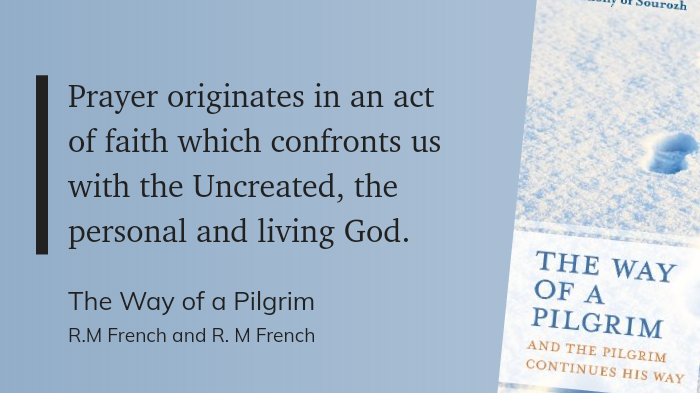
I read “The Way of the Pilgrim” this past fall and it really helped me see the importance of prayer as more than simply sending my requests to God. R.M. French, through his praying pilgrim, taught me how to pray always. Well, I still don’t pray always, but I pray more as I have developed the habit of having conversations with God. It is an act of faith, but one that reaps incredible rewards as you encounter the personal and living God. I highly recommend you read this book.



